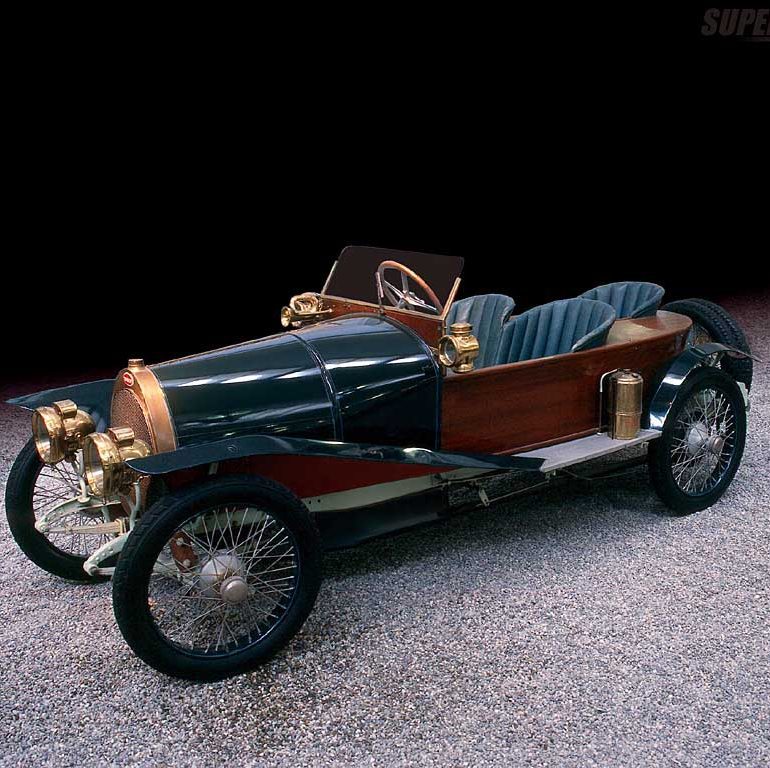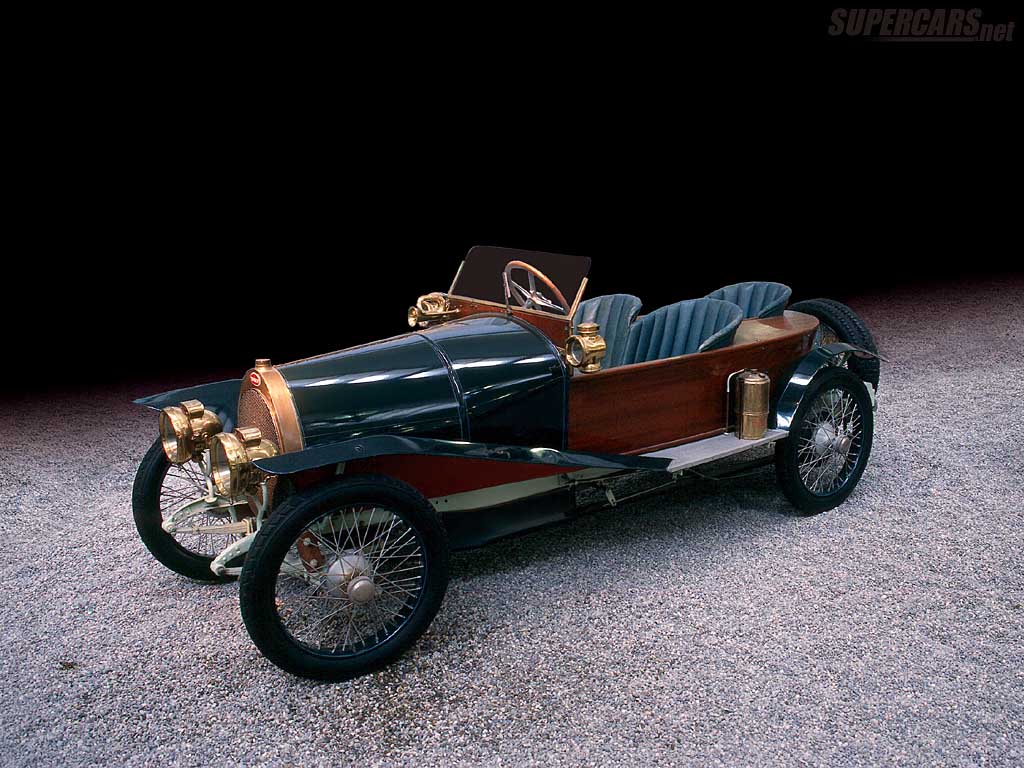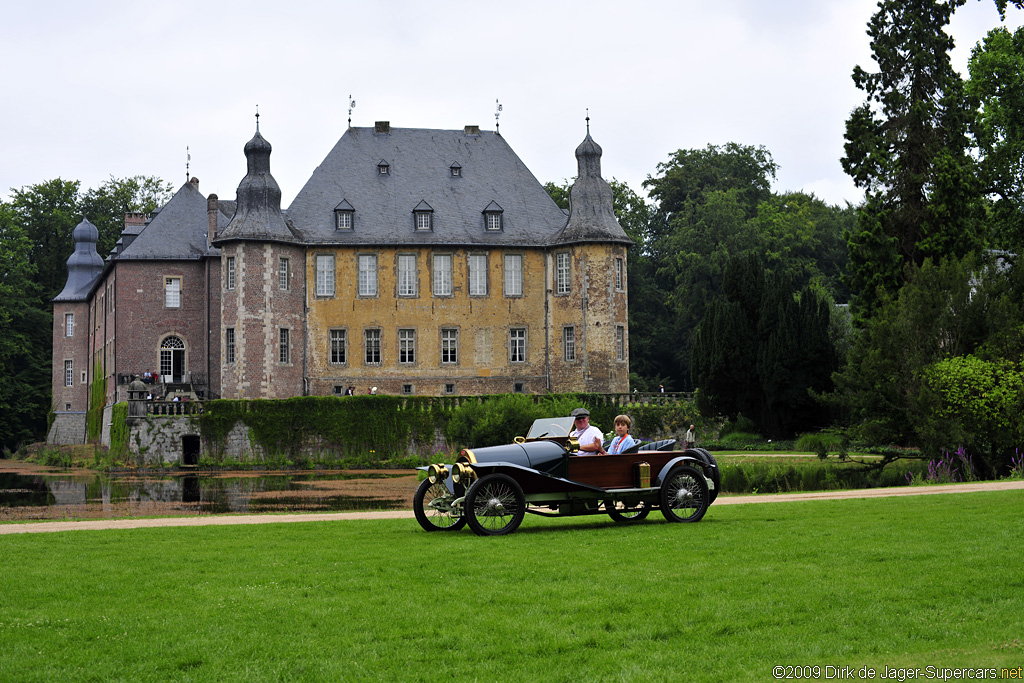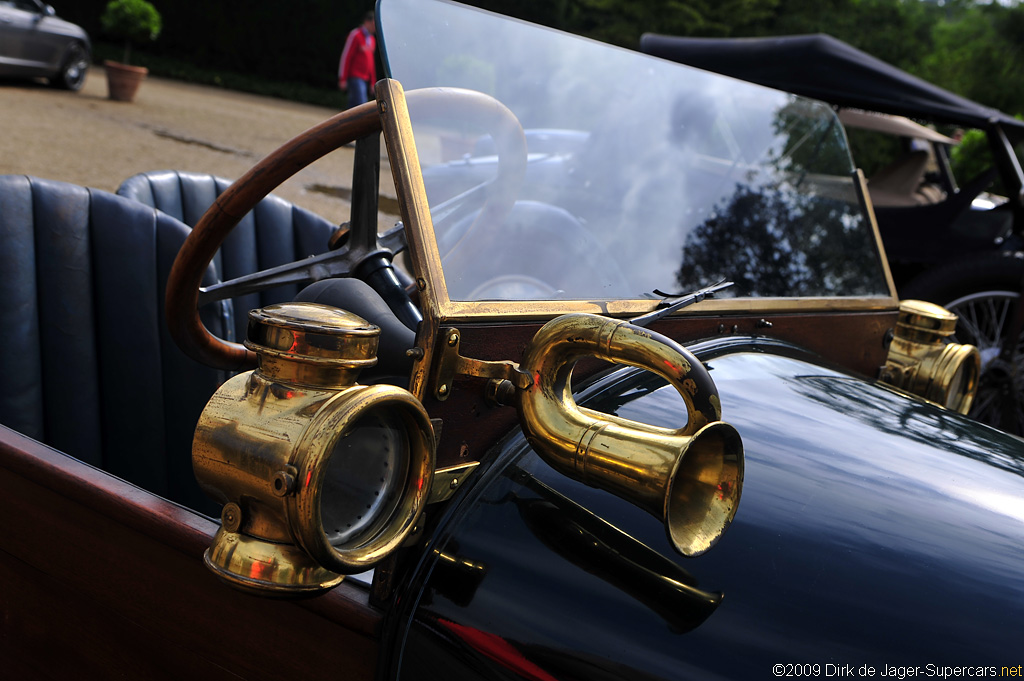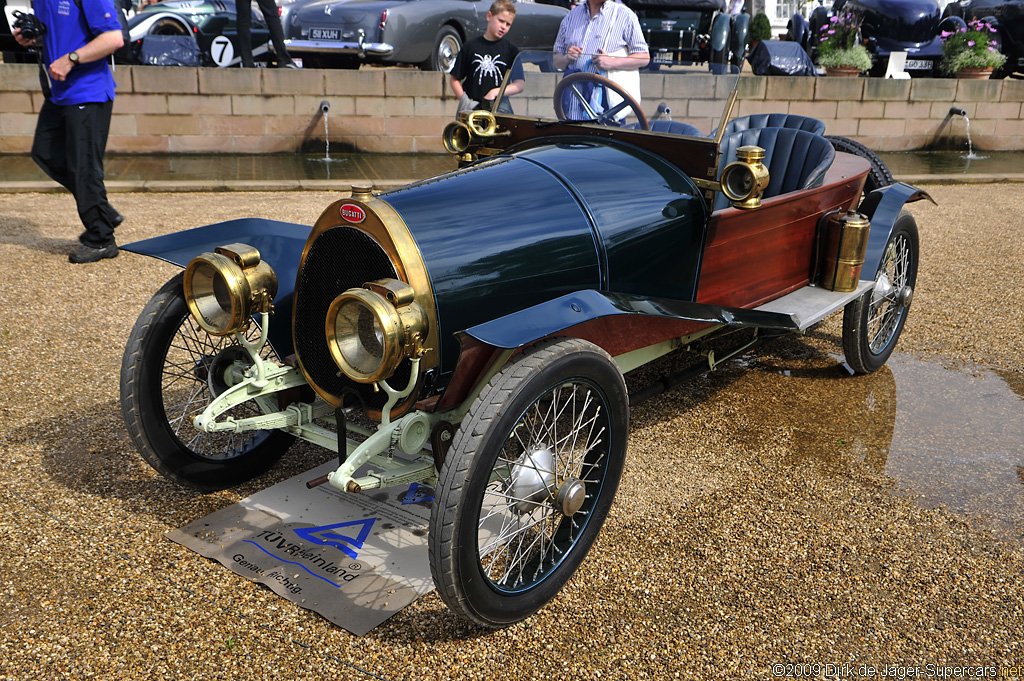1914 Bugatti Type 23 Torpedo
The Type 23 was similar to the Type 13 as it shared much of the same design and componentry. Great handling, steering and braking capabilities were still the common theme. It was these qualities which helped the Type 13 win many hillclimbs and other racing events. Demand was growing for Bugatti to sell passenger cars with such performance. Their answer was the Type 22 and 23 which differed only in wheelbase over the racey Type 13.
The largest Bugatti built in 1914 was the Type 23 with a wheelbase of just 2.5 meters. In comparison to other models, the Type 23 was still much smaller than most luxury vehicles of the period. The expanded wheelbase opened the door to custom coachwork for the first time on a Bugatti. Many Type 22s and 23s featured oddball French and German bodies some of which were completely closed-top.
In 1914 both the old Type 15 and 17 where replaced with updated models named the Type 22 and 23. During this transition the car received reversed quarter-elliptic rear springs which were first seen on the Bugatti-designed Peugeot Bebe. Some minor changes were made to the oil delivery system in the cambox as well.
Pictures & Gallery
See full 1914 Bugatti Type 23 Torpedo Gallery here
Specs & Performance
| engine | Inline-4 |
| position | Front Longitudinal |
| aspiration | Natural |
| valvetrain | OHC 2 Valves per Cyl |
| displacement | 1368 cc / 83.5 in³ |
| bore | 66 mm / 2.6 in |
| stroke | 100 mm / 3.94 in |
| power | 13.4 kw / 18.0 bhp @ 2500 rpm |
| specific output | 13.16 bhp per litre |
| body / frame | Steel over Steel Frame |
| driven wheels | RWD |
| front tires | 710×90 |
| rear tires | 710×90 |
| f brake size | mm / in |
| r brake size | mm / in |
| f suspension | Half Springs |
| r suspension | Reversed Quarter Elliptic Springs |
| wheelbase | 2550 mm / 100.4 in |
| front track | 1150 mm / 45.3 in |
| rear track | 1150 mm / 45.3 in |
| gear ratios | :1 |
| top speed | ~95.0 kph / 59.0 mph |


